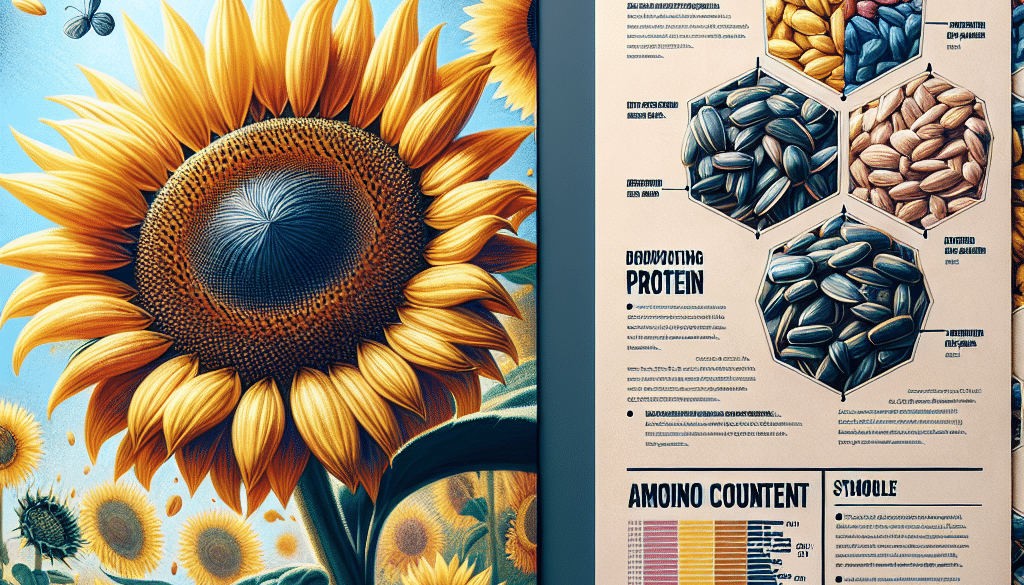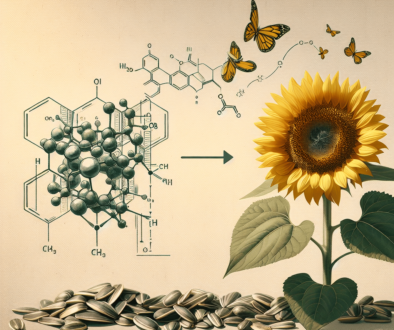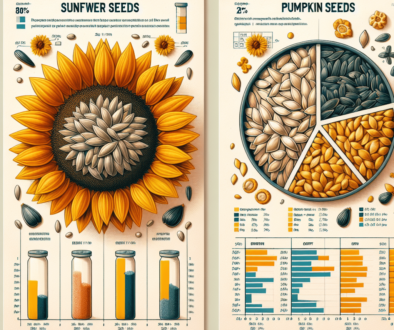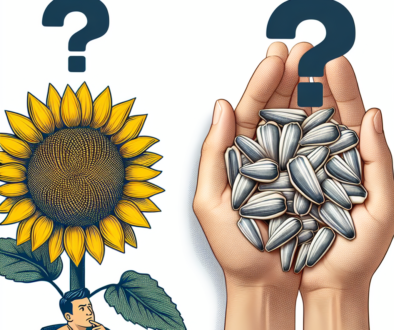Raw Sunflower Seeds: A Protein Overview
-
Table of Contents
- Raw Sunflower Seeds: A Protein Powerhouse Overview
- Understanding the Nutritional Profile of Raw Sunflower Seeds
- The Protein Content of Raw Sunflower Seeds
- Complete vs. Incomplete Proteins
- Comparing Sunflower Seed Protein to Other Sources
- Health Benefits of Sunflower Seed Protein
- Incorporating Sunflower Seeds into Your Diet
- Case Studies and Research on Sunflower Seed Protein
- Statistical Data on Protein Consumption
- Conclusion: The Significance of Sunflower Seed Protein
- Discover ETprotein’s Sunflower Seed Protein Products
Raw Sunflower Seeds: A Protein Powerhouse Overview
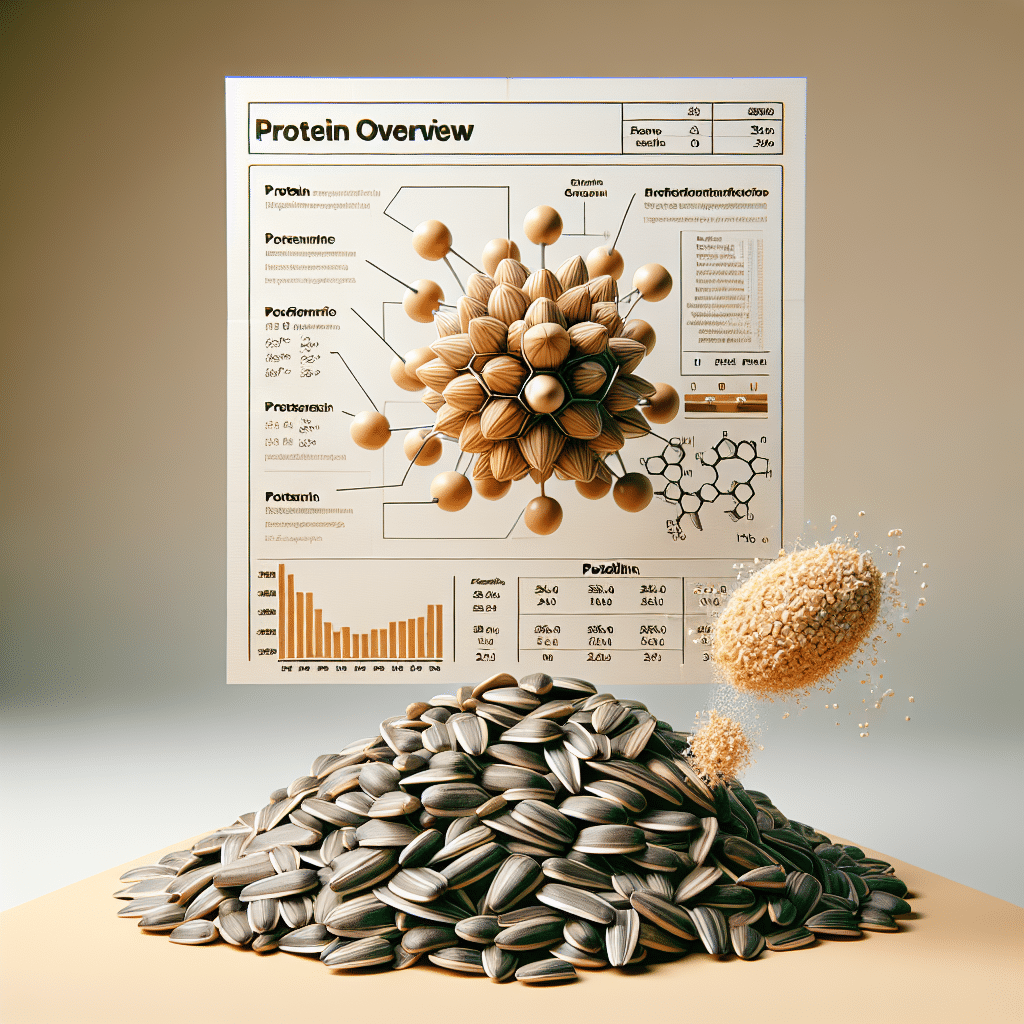
When it comes to plant-based proteins, raw sunflower seeds are often overlooked in favor of more popular options like soy or almonds. However, these small seeds pack a significant nutritional punch and offer a range of health benefits, including a high protein content that is essential for various bodily functions. In this comprehensive article, we will delve into the world of raw sunflower seeds, exploring their protein content, health benefits, and how they compare to other protein sources.
Understanding the Nutritional Profile of Raw Sunflower Seeds
Raw sunflower seeds are derived from the sunflower plant (Helianthus annuus), and they are a rich source of nutrients, including protein, healthy fats, vitamins, and minerals. Before we dive into the specifics of their protein content, let’s take a look at the overall nutritional value of these seeds.
- Protein Content: Sunflower seeds are a good source of plant-based protein, which is vital for muscle repair, immune function, and overall health.
- Fats: They contain polyunsaturated and monounsaturated fats, which are heart-healthy fats that can help reduce cholesterol levels and lower the risk of heart disease.
- Vitamins: Sunflower seeds are rich in Vitamin E, an antioxidant that protects cells from damage, and B vitamins, which are essential for energy metabolism and nervous system health.
- Minerals: They provide significant amounts of magnesium, selenium, and zinc, which play crucial roles in bone health, thyroid function, and immune response.
The Protein Content of Raw Sunflower Seeds
Protein is a macronutrient made up of amino acids, the building blocks of our muscles and tissues. Raw sunflower seeds are an excellent source of high-quality protein, especially for those following a vegetarian or vegan diet. A typical serving of sunflower seeds (about 1/4 cup) can provide around 6 to 8 grams of protein, making them a convenient and nutritious protein snack.
Complete vs. Incomplete Proteins
Proteins are classified as either complete or incomplete based on their amino acid profile. Complete proteins contain all nine essential amino acids that the body cannot produce on its own, while incomplete proteins lack one or more of these amino acids. Sunflower seeds are considered an incomplete protein source, but they can be easily combined with other foods to create a complete protein meal.
Comparing Sunflower Seed Protein to Other Sources
When compared to other seeds and nuts, sunflower seeds hold their own in terms of protein content. For example, they have more protein per serving than pumpkin seeds and are on par with hemp seeds. Additionally, sunflower seeds have a lower calorie count than many nuts, making them a less calorie-dense option for those watching their intake.
Health Benefits of Sunflower Seed Protein
The protein in sunflower seeds is not only abundant but also comes with a host of health benefits. Here are some of the advantages of incorporating sunflower seed protein into your diet:
- Supports Muscle Health: Protein is essential for muscle repair and growth. Sunflower seeds can be a valuable protein source for athletes or anyone looking to maintain or build muscle mass.
- Enhances Satiety: Protein-rich foods like sunflower seeds can help you feel full longer, which can aid in weight management by reducing the likelihood of overeating.
- Boosts Heart Health: The combination of protein, healthy fats, and fiber in sunflower seeds can contribute to a healthier cardiovascular system.
- Improves Skin Health: The Vitamin E and antioxidants present in sunflower seeds can help promote healthy skin and protect against UV damage and premature aging.
Incorporating Sunflower Seeds into Your Diet
There are numerous ways to enjoy raw sunflower seeds and reap their protein benefits. Here are some ideas:
- Add them to salads for a crunchy texture and protein boost.
- Blend them into smoothies or sprinkle on top of yogurt or oatmeal.
- Use sunflower seed butter as a spread on toast or in sandwiches.
- Make homemade granola or energy bars with sunflower seeds as a key ingredient.
- Roast them with spices for a savory snack.
Case Studies and Research on Sunflower Seed Protein
Several studies have highlighted the benefits of sunflower seed protein. For instance, research has shown that the inclusion of sunflower seeds in the diet can help improve cholesterol levels and reduce the risk of heart disease. Additionally, the high fiber content in sunflower seeds has been linked to better digestive health and a lower risk of obesity.
Statistical Data on Protein Consumption
According to the Dietary Guidelines for Americans, it is recommended that adults consume 46 to 56 grams of protein per day, depending on age and sex. With the growing trend towards plant-based diets, sources like sunflower seeds are becoming increasingly important. The global market for plant-based proteins is expected to continue growing, with sunflower seed protein playing a significant role in this expansion.
Conclusion: The Significance of Sunflower Seed Protein
In conclusion, raw sunflower seeds are a nutritious and versatile source of plant-based protein that can offer numerous health benefits. Their high protein content, coupled with other essential nutrients, makes them an excellent addition to any diet. Whether you’re an athlete, a health enthusiast, or simply looking to improve your protein intake, sunflower seeds are a choice worth considering.
Discover ETprotein’s Sunflower Seed Protein Products
If you’re interested in incorporating sunflower seed protein into your diet, ETprotein offers a range of high-quality protein products that can meet your needs. Their sunflower seed protein is characterized by a neutral taste, non-GMO, and allergen-free attributes, making it an ideal choice for various applications.
About ETprotein:
ETprotein, a reputable protein Chinese factory manufacturer and supplier, is renowned for producing, stocking, exporting, and delivering the highest quality organic bulk vegan protein and plant proteins. They include Organic rice protein, clear rice protein, pea protein, clear pea protein, pumpkin seed protein, sunflower seed protein, mung bean protein, etc. Their offerings, characterized by a neutral taste, non-GMO, allergen-free attributes, cater to a diverse range of industries. They serve nutraceutical, pharmaceutical, cosmeceutical, veterinary, as well as food and beverage finished product distributors, traders, and manufacturers across Europe, USA, Canada, Australia, Thailand, Japan, Korea, Brazil, and Chile, among others.
ETprotein specialization includes exporting and delivering tailor-made protein powder and finished nutritional supplements. Their extensive product range covers sectors like Food and Beverage, Sports Nutrition, Weight Management, Dietary Supplements, Health and Wellness Products, and Infant Formula, ensuring comprehensive solutions to meet all your protein needs.
As a trusted company by leading global food and beverage brands and Fortune 500 companies, ETprotein reinforces China’s reputation in the global arena. For more information or to sample their products, please contact them and email sales(at)ETprotein.com today.

